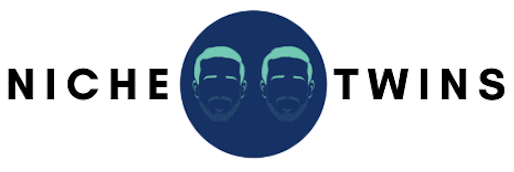Back in July, Gael Breton from Authority Hacker posted an engaging thread comparing data outputs between Ahrefs, Semrush and SERanking.
More specifically, he compared keyword data, domain-level organic traffic estimates and top organic page estimates.
As most of you are aware by now, Mike and I officially became part owners of the keyword research tool Keysearch a couple weeks ago.
So naturally, I thought it would be interesting to re-run these same comparisons – but this time with Keysearch in the mix.
Here’s what I found…
Before diving in, it’s worth noting that I’ve updated all the data detailed below to reflect outputs collected as of 02-Nov-2023.
Because Gael ran his analysis back in July, you’ll notice some of these metrics have changed (in some cases, fairly significantly).
I have also not included the ‘top organic page estimates’ in my review as I am pending feedback on how Keysearch fared in estimating Authority Hacker’s top 15 pages.
Once received, we will provide this update in the Niche Twins Newsletter Archive and on Twitter.
Keyword Data Comparison
In an effort to cover a broad range of keyword profiles, Gael included a high volume, medium volume and long-tail keyword in his analysis. Here’s how Keysearch stacks up…
High Volume Keyword: “best VPN”
For this high volume keyword, Keysearch has the highest global volume estimation, while Ahrefs, Semrush and SERanking are all tighter in their respective estimates. But in general, the metrics are fairly comparable and all within a ~10% variance.
From a competition standpoint, Keysearch’s numerical difficulty score of 66 certainty seems to be on the low end, but it’s worth noting that within the tool this score equates to a competition level of “very difficult”.
Medium Volume Keyword: “is Clickbank legit?”
Interestingly, this medium volume keyword resulted in the greatest global volume variance across these four tools.
In this instance, because Authority Hacker ranks on page 1 for “is Clickbank legit?”, Gael was able to provide real-world data that suggests a global monthly volume of ~3k.
With this in mind, Ahrefs is the closest, followed by Keysearch, then SERanking, with Semrush being last.
Long-Tail Keyword: “wp rocket vs nitropack”
Gael also produced real-world data for this long-tail keyword, revealing a global monthly volume of ~100.
For this example, Keysearch is the closest, followed by SERanking, with Ahrefs and Semrush being last.
Domain Level Organic Traffic Comparison
Next, Gael wanted to see the organic traffic estimation variation on a domain level, so he picked the following 5 sites of various sizes: Outdoorgearlab.com, Forbes.com, Dronesgator.com, Bestplumbing.com and Garargegymreviews.com.
Interestingly, when he originally ran these numbers a few months back, SERanking seemed to consistently overestimate traffic by a lot.
In my more recent review, SERanking still consistently remains on the high-end, but it appears they’ve come back down to earth for some of these domains. For example, in July SERanking forecasted Forbes’ global organic traffic volume to be 246m (vs 83m here) and 8.2 m for Outdoorgearlab (vs 3.8m here).
On net, Keysearch’s forecasts are right there in the mix with perhaps two notable exceptions.
First, the domain that generated the highest variance was Dronesgator.
Based on the latest Ahrefs and Semrush data, this site appears to have been negatively impacted by the recent Google algo updates in a big way. If this is indeed the case, both Keysearch’s and SERanking’s data seem to be lagging behind this reality.
Second, Keysearch over-forecasts Forbes’ global organic traffic by quite a bit in comparison to the other tools.
What’s It All Mean?
About a year ago I tweeted the following message:
“Remember keyword difficulty and volume are DIRECTIONAL at best.
Many times these metrics are flat out wrong.
Everyone has the same keyword research tools – your competitive advantage is using your brain.”
I firmly believe this sentiment remains true today.
As part of Mike and I’s keyword research process, we cross-reference what we find in Keysearch with Ahrefs’ Free Keyword Generator and Google Keyword Planner.
We followed a similar process back when I was primarily using Semrush and when Mike was primarily using Ahrefs.
Not because any one of these sources are exactly precise. They’re not.
Instead, by confirming search volume (directionally speaking) across multiple tools, it increases our confidence interval that the range of traffic we are expecting is actually out there.
As for competition and difficulty metrics, these scores are just leading indicators that help us filter out the extremes (for example, adding filters for keywords with difficulty scores greater than 50 as a first pass).
But a difficulty score is never a substitute for a deep, manual page 1 SERP analysis – no matter what tool you are using.
So in summary, to adapt a quote by the British statistician George E. P. Box, “All keyword research tools are wrong, but some are useful”.
If you’re someone who requires all the bells and whistles and up-to-the-second updates, Ahrefs’ and Semrush’s monthly costs of $100+ is likely justified.
But for 17 bucks a month, Keysearch is absolutely useful for our almost 10,000 customers and it’s very likely useful for you too.
So, give it a go and let us know what you think!
–> CHECK KEYSEARCH OUT HERE <–.
Have a weekend! ✌️
Keith

Niche Twins newsletter sent weekly on Fridays at 8:30 AM ET


